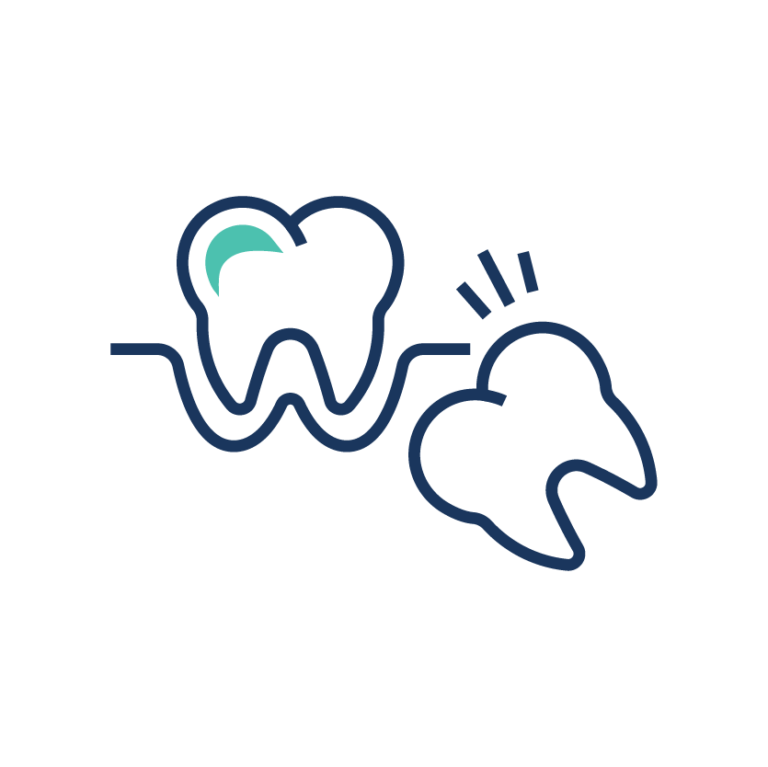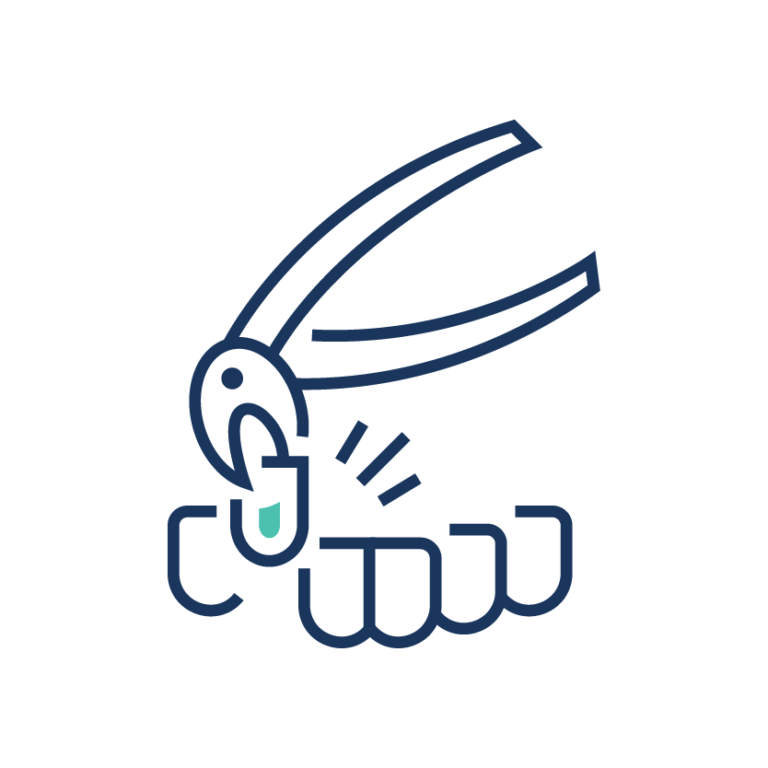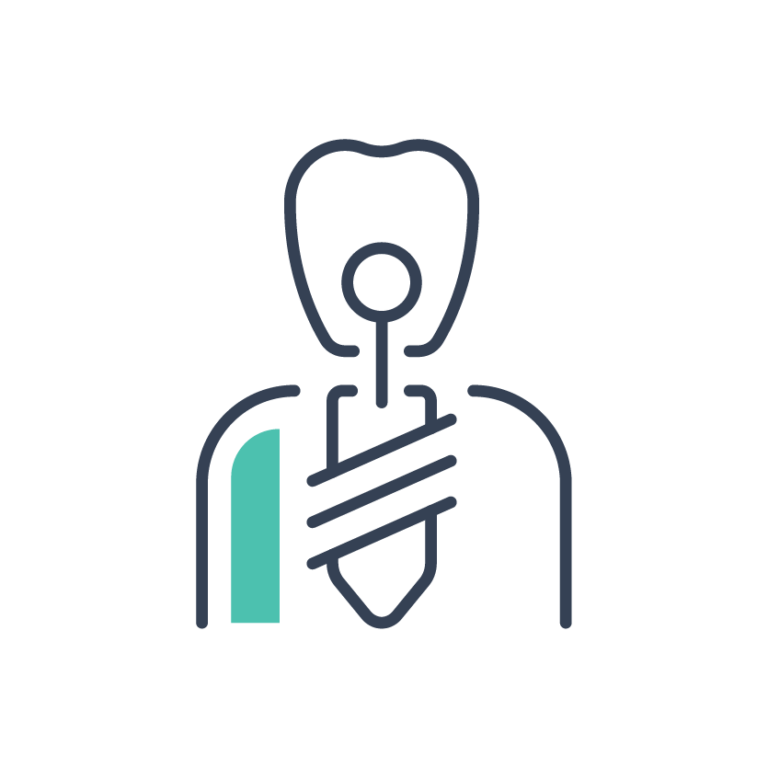Wisdom Tooth Extractions in Vancouver, WA
While it may seem like wisdom tooth extractions are a rite of passage into adulthood, the truth is that wisdom teeth only need to be extracted under certain circumstances. As part of BiemCare, we offer consultations and wisdom tooth extractions. Wisdom teeth are extra teeth also called 3rd molars. If you have a referral it will list teeth #1, 16, 17 and 32. These teeth are located in the very back of your top and bottom jaws. Wisdom teeth often cause infection and pain if there is not room for them to erupt.
Third molars, commonly referred to as “wisdom teeth,” typically erupt when a patient is in their late teens or early twenties, typically between 17 and 25 years of age.
Interestingly enough, our ancient ancestors rarely encountered issues with wisdom tooth eruptions since the primary and secondary molars were largely worn down by the time third molars erupted, greatly reducing the frequency of complications.
Due to soft, processed modern diets, wisdom teeth are largely seen as vestigial teeth. That is, they no longer serve the same purpose as they did thousands of years ago when the human diet was more dependent on raw nuts, vegetables, fruits, and tough meats.
According to the American Association of Oral and Maxillofacial Surgeons, over 50% of individuals with erupting wisdom teeth can expect at least one tooth to become impacted.
A wisdom tooth that is growing incorrectly can pose a number of risks to your oral health. Some of the most common complications that can arise include:
- Crowding and crooked teeth. When there is not enough space in a dental arch for wisdom teeth to erupt properly, it may cause other teeth to become crooked. The erupting wisdom tooth can also directly damage the second molars, which can make it difficult to brush and floss effectively and possibly lead to infection.
- Oral cysts. Before teeth erupt, they form in a sac within the bone of the jaw. If the wisdom tooth does not erupt properly, this sac can become overwhelmed, leading to cyst formation. Oral cysts can damage teeth, gums, and jawbone tissue. More uncommonly, oral cysts can form noncancerous tumors that require surgical removal.
- Tooth decay and gum disease. When a wisdom tooth doesn’t erupt fully it becomes what is known as impacted. When this happens, food particles and bacteria (biofilm) become more easily trapped between the wisdom tooth and the gum, increasing the likelihood of tooth decay and gum disease. This can lead to a condition known as pericoronitis. Pericoronitis is inflammation that occurs below excess gum tissue around impacted teeth.
Through X-ray exams, dental professionals can accurately predict whether a wisdom tooth will cause crowding or become impacted. Therefore, if you notice that wisdom teeth are beginning to erupt, you should schedule an appointment with a dentist. Proper planning can help you avoid painful complications, wasted time, and possibly even braces.
While the only way to determine whether a patient requires wisdom tooth removal is through a consultation, there are some symptoms that should not be ignored. These symptoms may indicate that you should have a wisdom tooth extracted:
- Pain near the back of the mouth. Pain is the body’s way of indicating that something is wrong. While some tenderness can be expected when wisdom teeth erupt, it should not be painful. If the pain is persistent or even sporadic, you should consult with a dentist.
- Bleeding gums. Do you notice blood in your spit while you floss or brush your teeth? This could indicate either gingivitis or a complication with erupting wisdom teeth.
- Swelling at the back of mouth or jaw. When there isn’t enough space for a wisdom tooth to erupt you may experience swelling that worsens over time.
- Foul taste or breath. Sometimes wisdom teeth are removed for the simple fact that their position in the mouth makes them difficult to brush and floss. This means that wisdom teeth are likely to accumulate plaque or tartar, which can lead to tooth decay and/or infections below the gum line. If you notice recurring foul breath or taste in your mouth, be sure to discuss this with your dentist.
- Swelling and tenderness. As a wisdom tooth erupts, excess gum tissue can form around the tooth. This can cause bacteria and small bits of food to become trapped, which can aggravate the gums and even lead to gingivitis or infection. Let your dentist know if you experience tenderness or swelling.
- Headaches or pain in jaw or ear drums. Due to the interwoven network of nerves in the mouth and head, wisdom tooth pain can sometimes manifest as headaches, earaches, or pain or stiffness in the jaw. These pains should not be ignored as they will likely worsen.
- Pain or stiffness in the jaw. Erupting wisdom teeth can alter your bite (the way your teeth come together). The effects of bite misalignment (malocclusion) can be felt in the muscles of your jaw and can result in stiffness and pain. You may even have issues opening and closing your mouth. Bite misalignments do not resolve themselves on their own. Consult with a dentist if you notice stiffness or pain in the jaw area.
Sometimes, an improperly erupting wisdom tooth is only detected through X-ray examination. This is just one of many reasons you should attend regular checkups with your dentist.
Having a wisdom tooth extracted sounds intimidating, but with modern anesthesia and sedation techniques, you should experience very little in the way of pain or discomfort.
The procedure begins with the application of a sedative which will help you to remain calm and reduce discomfort throughout the procedure. A local anesthetic will also be applied around the surgical site. This helps to temporarily block the pain-signaling nerve channels.
Depending on the position of the wisdom tooth, some gum and bone tissue may need to be removed in order to reduce the risk of possible complications. To simplify the extraction, the tooth may be removed in sections. If it is an impacted wisdom tooth, the pericoronal sac will also be removed to prevent the formation of a cyst.
Like other forms of surgery, special care should be taken in the hours and days following the procedure to avoid complications. If you are prescribed medication following your procedure, be sure to take them as directed. Some swelling around the extraction site is to be expected. Swelling usually peaks 48 to 72 hours after the procedure and then gradually subsides. You can apply an ice pack to the cheek area to help reduce swelling and inflammation (a cycle of 15 minutes on, 15 minutes off is generally recommended).
- Numbness. For several hours after the procedure, your mouth and tongue will be numb. Do not attempt to eat or chew until feeling has returned. (It is very easy to accidentally bite your tongue when it is numb.)
- Discharge. Some discharge can be expected 24 hours following your extraction.
- Jaw soreness. In the days following the procedure, you may experience some discomfort and difficulty opening your mouth and swallowing. Patients may also experience jaw stiffness, a sore throat, and/or a mild earache. These are considered to be normal side effects and should resolve themselves on their own.
Following your wisdom tooth extraction, surgical gauze will be placed over the extraction site. The gauze should stay in place for at least a half-hour following surgery.
A blood clot will form in the extraction site several hours following surgery. The blood clot is an important part of the healing process. Therefore, you should take care to ensure it remains intact.
Avoid touching the surgical site (even with your tongue) or swishing/rinsing the mouth vigorously. You should also avoid any activity that creates a vacuum or suction in the mouth, such as smoking, vaping, or using a straw to drink fluids. If you experience bleeding after 48 hours or the blood clot becomes dislodged, please contact our office.
Refrain from smoking or ”vaping” for at least two weeks following your surgery.






